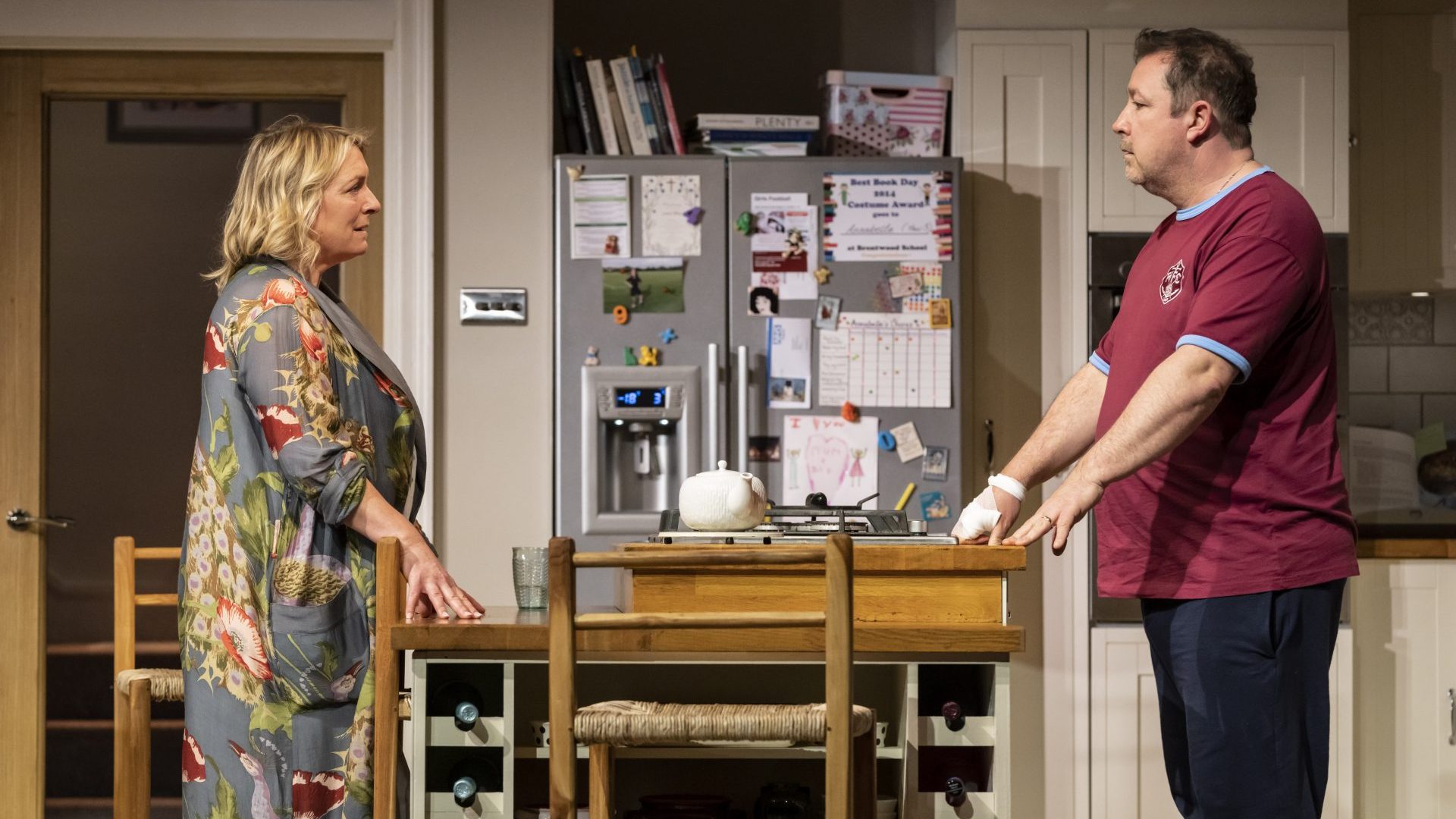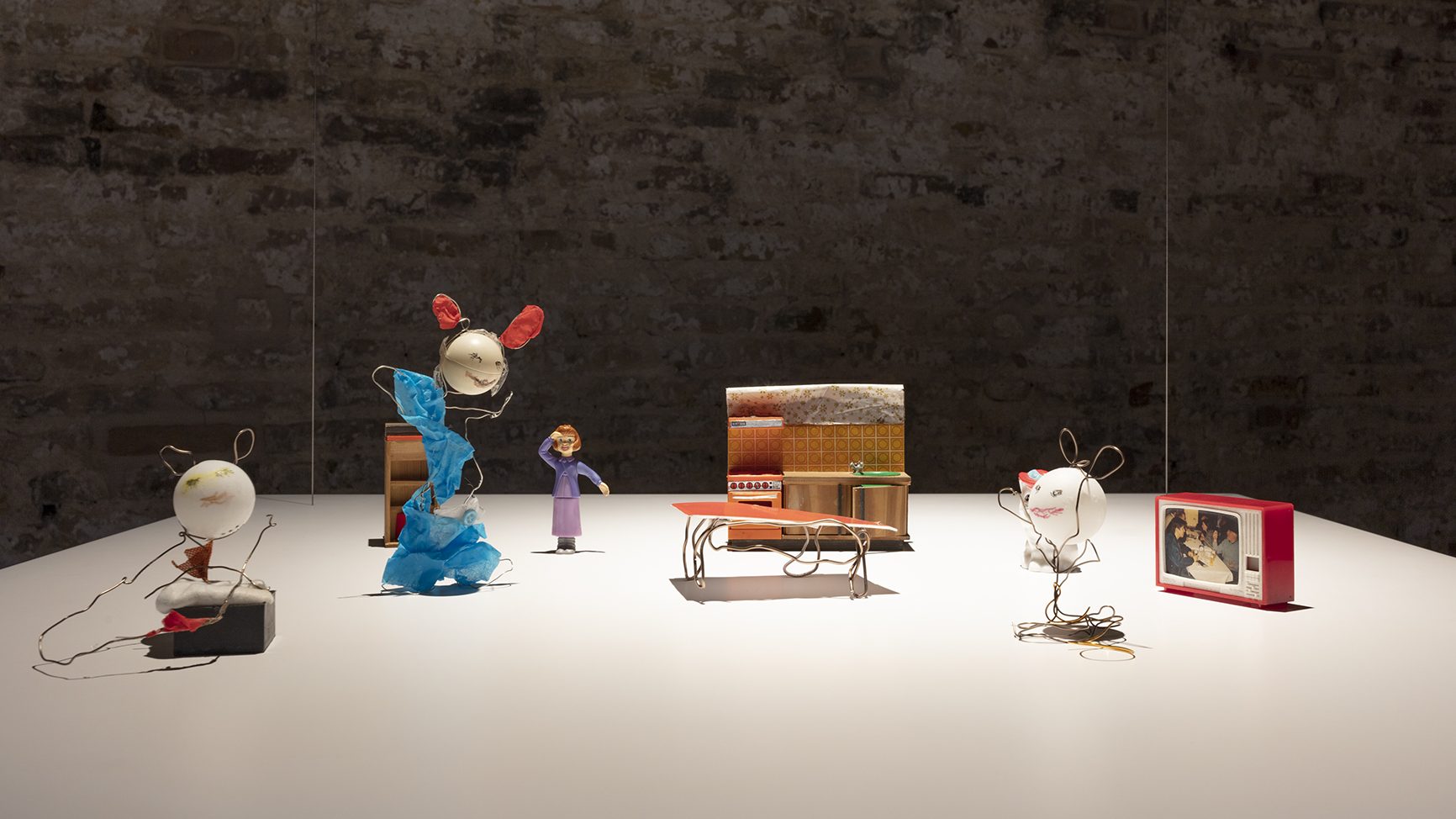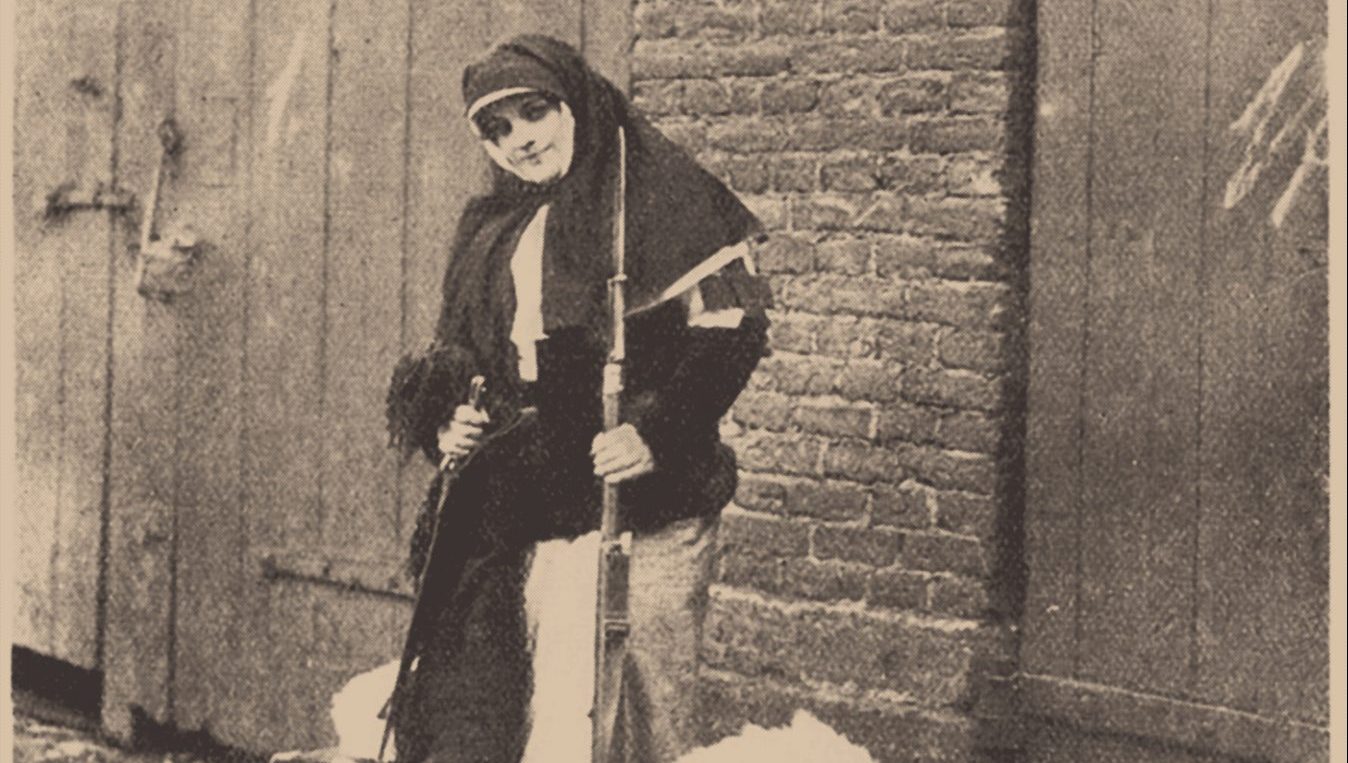Middle
National, London, until June 18
It’s been a while since the National took a look at the institution of marriage. David Eldridge’s Middle doesn’t have anything especially startling to say for itself, but it amounts to a conscientious enough run around the houses. It’s part two of a trilogy of plays Eldridge has written about relationships that kicked off with Beginning, about two people falling in love, which was staged four years ago. This one, about a marriage that’s turned stale, is necessarily a
bleaker and more heavy-going affair.
Polly Findlay’s production is a two-hander that stars Claire Rushbrook as Maggie and Daniel Ryan as Gary. They live in a large six-bedroom house, with a spoilt daughter asleep upstairs, and appear to all the world to have it all. Only Maggie then goes and spoils everything by announcing to Gary that
she’s not sure she loves him any more.
He gets on with making the tea, hoping she’ll forget what she has just said, but she persists and then it gradually all starts to come out as the long evening progresses. She doesn’t enjoy the sex any more – and he cheerfully concedes he’s not exactly “Uri Geller in the bedroom department.” He remembers the last Valentine’s Day night as a joyously romantic evening. She remembers it with a shudder.
She eventually admits she’s started seeing – platonically, she insists – a policeman called John who appears to her to be the height of sophistication because he listens to Classic FM. The great thing is that they can talk to each
other. This understandably upsets Gary and he attacks the kitchen cabinet in a frenzied rage and smashes the plates. The two of them get together to tidy them up. It then turns out John isn’t necessarily all he’s cracked up to be: he has a wife with an overactive thyroid and an anorexic daughter and he’s made it clear he’s not keen on leaving them. A kind of reluctant rapprochement ensues between the couple, with him agreeing to sleep in the spare bedroom – he’s not really bothered about the sex, one way or the other – and they both agree to think things over.
It’s well acted by Rushbrook and Ryan, but the play makes for an uneasy mix of pathos and comedy. Eldridge has clearly created the characters and their circumstances with the punters at the National in mind: he wants them to see something of themselves in the couple. I wonder if there are all that many who go to the theatre these days who live in houses quite as big as Maggie and Gary’s.
So far from identifying with the couple, the punters sitting around me seemed to be laughing at them. Gary and Claire seemed to be little more
than a po-faced version of Terry and June or maybe even George and Mildred. Done seriously and properly, these sorts of marital dramas work a lot better when there is an extra dimension to them – the class divide in Look Back in Anger, the sharp tongues of the pair in Who’s Afraid of Virginia Woolf?, or an additional, demanding factor, such as the wheelchair-bound child in A Day in the Death of Joe Egg.
Ultimately, the great problem with Maggie and Gary is that they don’t really have any genuine problems, beyond her sense of boredom and his sense that boredom is something you might as well come to terms with. It’s no doubt possible to argue their marriage is something of a symbol of the listless times in which we live. If it’s a state-of-the-nation play, then all it has to say is that the nation is in a bit of a state, which will hardly come as a surprise to anyone.
Judging this purely in terms of entertainment value, Middle is at best middling. After Beginning, and now Middle, one finds oneself looking ahead with a distinct sense of dread to Eldridge’s End.




